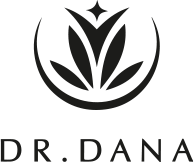Choosing organic and local produce is more than a health trend; it’s a lifestyle shift that promises remarkable benefits for your health and the planet. Opting for organic foods means saying no to synthetic pesticides, fertilizers, and genetically modified organisms (GMOs) that are staples in conventional farming. These substances are often linked to a myriad of health issues, including hormonal disruptions and a higher risk of chronic diseases. By selecting organic, you’re not just protecting your body from these harmful chemicals, but you’re also endorsing farming practices that enhance soil health and preserve biodiversity.
On the flip side, local produce champions the idea of consuming foods grown in your immediate community or region. This approach minimizes the carbon footprint associated with transporting food over long distances, ensuring that you’re eating fresher, more nutrient-rich foods. Plus, supporting local farmers means bolstering the local economy and fostering a sense of community. The combined effect of choosing both organic and local produce is profound. It doesn’t just enhance your health; it supports sustainable farming practices that benefit the environment by reducing pollution and conserving water resources.
Moreover, making the switch to organic and locally sourced foods is a significant stride towards a healthier lifestyle and a more resilient food system, capable of facing the challenges of climate change. Especially for children, who are more vulnerable to the effects of pesticides, an organic diet can lead to fewer allergies and health problems, highlighting the importance of thoughtful food choices. In essence, prioritizing organic and local produce is an impactful decision that nurtures both personal health and environmental sustainability, setting the foundation for a healthier generation and a thriving planet.
